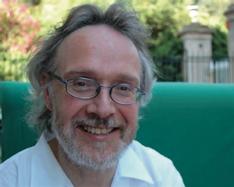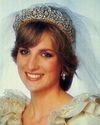Poging GOUD - Vrij
Manifesto for humanising science
The Light
|Issue 60, August 2025
The world needs a new integration of modern science, philosophy and ancient spiritual wisdom — a ‘New Renaissance’

BELOW are ten core themes which, for me, stood out as the core necessary conditions for humanising science and medicine that emerged in the course of writing my forthcoming book (tinyurl.com/3sudcn2t).
These are harbingers of the evolutionary paradigm-shift that’s so desperately needed in our world, and in which process this newspaper is taking a leading role. The list should not be read as a prescription, or as definitive — merely a conversation-starter on what needs to happen for the humanising of science and medicine to advance.
1. Teasing out and articulating our (metaphysical) assumptions, and their effects. It would be a grave error to assume that this precept is something that all critical thinkers do anyway ~ far from it! Cultivating doubt in one’s views, and being comfortable with the discomfort of ‘not knowing’ — John Keats’ ‘negative capability’ — are necessary preconditions for being able to fearlessly question our deepest and most consequential assumptions. We should also never underestimate the acute existential anxiety that can stem from the destabilisation and undermining of our most taken-for-granted notions about the world.
2. Actively cultivating free, creative thinking. Based on my teaching experience at university level, the quality of human thinking has been substantially compromised in the current technological age. We’re routinely unaware of the extent to which the free nature of thinking is being radically attenuated, not least by the social-media techno-cultures of so-called ‘communication’ to which so many are addicted, and the stultifying ‘audit culture’ that’s so compromised mainstream education. Education professor, Philip Adey, maintained in 2006 that ‘The intelligence of 11-year-olds has fallen by three years’ worth in the past two decades’, with children today struggling with questions they could have answered 30 years ago. So there’s much to be concerned about here.
Dit verhaal komt uit de Issue 60, August 2025-editie van The Light.
Abonneer u op Magzter GOLD voor toegang tot duizenden zorgvuldig samengestelde premiumverhalen en meer dan 9000 tijdschriften en kranten.
Bent u al abonnee? Aanmelden
MEER VERHALEN VAN The Light

The Light
Why do we trust the political class?
IT began, as most national embarrassments do, with good intentions and a graph. Gordon Brown, that high priest of responsible arithmetic, decided around the turn of the millennium that Britain owned too much shiny metal and not enough moral superiority.
4 mins
Issue 63, 2025

The Light
Dilemma of conflicting 'rights'
No community should violate the freedoms of a minority
4 mins
Issue 63, 2025

The Light
The ritual execution of Princess Diana
ON 31st August 1997, Princess Diana died in a car crash in Paris's Pont de l'Alma tunnel. Official accounts are contradictory and simple research points to a long-running conspiracy.
4 mins
Issue 63, 2025

The Light
Sugar industry's fluoride 'solution'
Researchers tasked with sweetening tooth decay problem
4 mins
Issue 63, 2025

The Light
Trump's colonial plan
U.S. takes Gaza, and Israel takes the West Bank
5 mins
Issue 63, 2025

The Light
All that glitters is not gold
Precious metal value boosted by economic turmoil
3 mins
Issue 63, 2025

The Light
End of the road is serfdom
Who controls the public mind? Economist warned of path to totalitarian oppression
4 mins
Issue 63, 2025

The Light
Pushback against vast data centres
Communities in U.S. rally to repel Big Tech planning bids
4 mins
Issue 63, 2025

The Light
Water: Much more than we think
Gel-like state could be key to health and consciousness
2 mins
Issue 63, 2025
The Light
Discover the formidable legal shields safeguarding your rights
The UK constitution isn't a single book; it's a living arsenal forged across centuries in charters, conventions, and court rulings.
2 mins
Issue 63, 2025
Listen
Translate
Change font size

